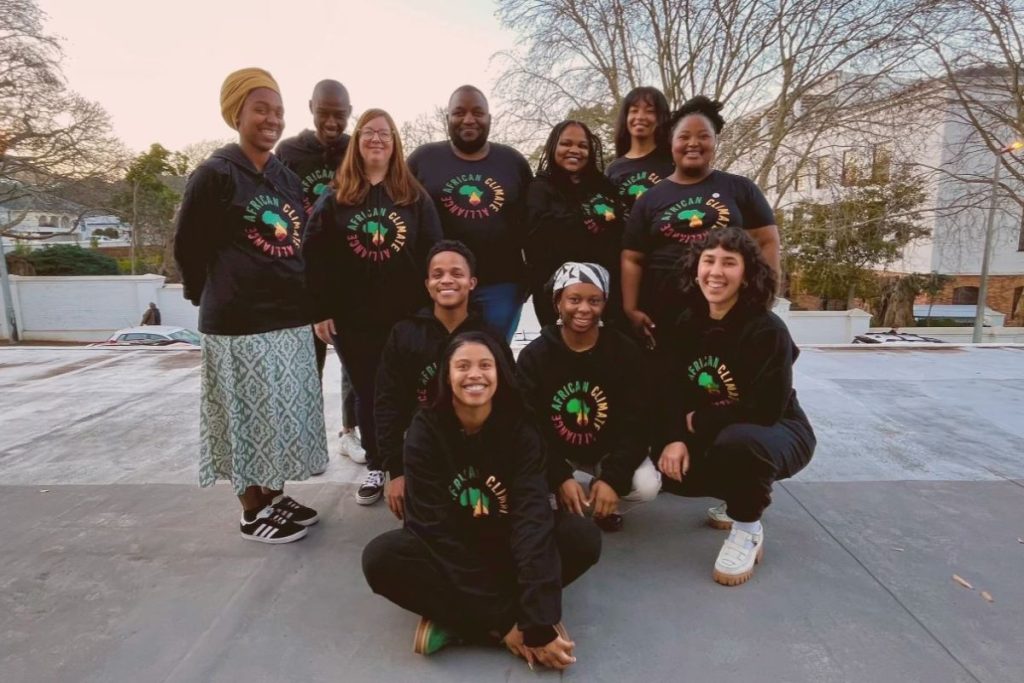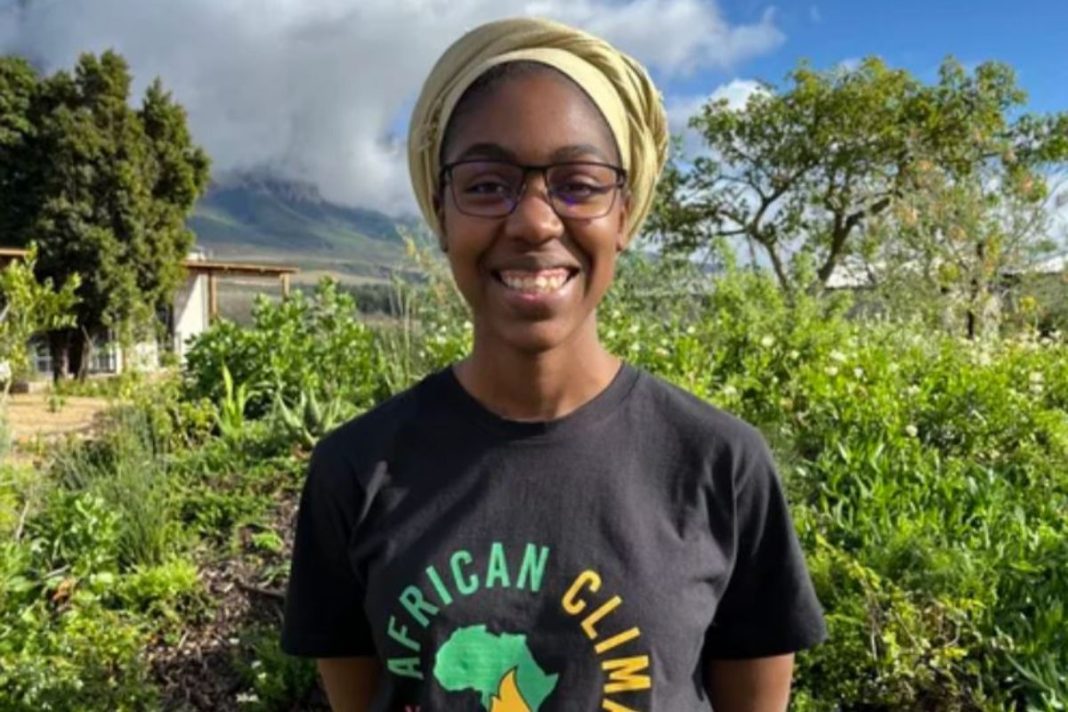Mitchelle Mhaka, Regional Expansion Lead at the African Climate Alliance, explores Afrocentric climate justice, youth power, and ACA’s landmark Cancel Coal victory.On December 4, 2024, a Pretoria High Court delivered a ruling that reverberated far beyond South Africa’s borders.
In what became known as the ‘Cancel Coal case’, the court struck down the government’s plan to procure 1,500 megawatts of new coal-fired power, declaring it unconstitutional and unlawful.
The judgment marked the first time a South African court had stopped coal expansion on constitutional grounds, setting a precedent that youth-led movements could hold governments to account not only for environmental harms but also for the health, social and generational rights threatened by fossil fuels.
At the heart of that victory was the African Climate Alliance, a youth-led movement that filed the constitutional challenge.
ACA has transformed from street protests into a structured force for policy, law and narrative change.
Among its leaders is Mitchelle Mhaka, the organisation’s Regional Expansion Lead, who has been instrumental in shaping ACA’s continental reach and Afrocentric vision of climate justice.
In this conversation, Mitchelle reflects on the philosophy behind Afrocentric climate justice, the Cancel Coal campaign, and the challenges and hopes of building a youth-powered, justice-centred climate movement across Africa.
Can you tell me briefly how you got into climate activism?
My activism started back in high school. I was involved in debating and in the environmental club, and those spaces sharpened my critical thinking. They gave me the tools to turn personal outrage into public action. A project where I interviewed an elder who had lived through apartheid really radicalised me; it made the issues feel immediate, not just academic.
Later, during COVID, I got involved in different climate projects and eventually joined the African Climate Alliance. I also have a background in education, computer science and applied math, which now helps me translate data into accessible narratives for communities.
You describe ACA’s approach as ‘Afrocentric climate justice.’ How would you explain that to someone unfamiliar with the term?
For me, Afrocentric climate justice means putting African experiences, realities, and indigenous knowledge at the centre. It’s about recognising that we can’t keep importing one-size-fits-all models from the West.
It also means learning from the harmful history of conservation that displaced indigenous people from their lands. Instead, we need to ask: how have our communities traditionally protected the environment? How have they lived in balance with it? And then we build from there.
Afrocentric climate justice is context-specific; what works in Zimbabwe or the Western Cape won’t necessarily work elsewhere. The key is centring the people most affected: workers, women, and rural communities. It’s not about abstract global metrics; it’s about lived realities.
When did you personally realise Africa needed its own climate lens, rather than copying Western models?
I think it really hit me when I kept seeing sustainability portrayed as if it were a Western invention. Yet my grandparents practised circular living every day. They reused, repaired, and passed things down.
At some point, I thought, wait, why is this framed as if it belongs to the West? That frustration pushed me to start speaking out on social media. And from there, I found ACA, which gave me a space to build on those ideas.
What does your role as Regional Expansion Lead look like in practice? How has it changed your perspective on activism?
My role is really about strengthening existing youth-led work across different countries. It’s not about taking a South African model and exporting it everywhere. It’s about mapping what’s already happening, listening first, and then supporting groups in ways that make sense for them.
That could mean helping with translation, adapting programmes to cultural contexts, or building connections across borders.
The work has taught me the importance of peer-to-peer learning and being intentional about collaboration. Before applying a framework, you need to understand the language, the culture, and the experience on the ground.
ACA has experimented with co-leadership and sociocratic governance. Why is it important for your structures to mirror the justice you advocate externally?
We’ve always tried to make sure our internal culture matches our external values. That’s why we experimented with co-leadership, wage gap limits, and sociocratic decision-making.
Of course, our models have evolved from a three-person managerial circle to co-leadership and now to a structure with a director alongside sociocratic elements.
But the goal remains the same: shared power, accountability, and protecting youth agency. It’s about making sure we don’t replicate the very systems we’re trying to challenge.
Can you walk me through ACA’s main programmes and how they connect?
We have four main pillars. First is Education. We run ‘Back to Basics’ workshops and weekly dialogues that build climate literacy from the ground up.
Second is Action. Our actions are decentralised. They can be protests, tree-plantings, artivism whatever is safe and strategic in a given context.
Third is the Ambassador Programme, which is our flagship continental training. It equips young people with advocacy and leadership skills, so they can go back and lead in their own communities.
Fourth is Advocacy. This is where we engage in policy spaces, contribute to NDC reviews, and prepare position papers.
All of these connect. Education feeds the dialogues and the actions. The Ambassador Programme spreads capacity across Africa. And advocacy channels the youth voice into policy.
The Cancel Coal court victory has been described as ‘landmark’. What did it mean for ACA, and what does it signal for future struggles?
The Cancel Coal victory was huge for us. It showed that young people can use the courts to hold governments accountable.
One reason we could take such a bold stance is because we refuse funding tied to fossil fuel interests. That independence gave us the freedom to act.
For me, the win was not just South African. It was a continental signal, a precedent that youth movements across Africa can leverage in future fights against fossil fuel expansion.

How has ACA managed its funding and independence, especially with global shifts in climate finance?
We’ve been lucky in that our funder relationships are flexible. We’ve also been very deliberate about who we take money from we don’t accept funding linked to fossil fuels.
Now we’re actively looking to diversify toward more local and African funders.
But for us, the priority is always independence. We want to remain uncompromised so we can keep doing advocacy that is bold and truthful.
What challenges do you face in expanding ACA across Africa?
Language is a big one. Climate is experienced differently and even described differently depending on the country. So translation and adaptation are crucial.
There’s also the reality that in some countries, protest is not safe. That’s why our actions are decentralised and flexible, each region has to find what works for them.
It’s challenging, but it also forces us to be creative and to design models that are truly regional, not imposed from outside.
ACA emphasises youth leadership. Why is protecting youth agency so important to your movement’s sustainability?
Young people are the majority in Africa, and they’re the ones driving structural change. When they’re capacitated and given space, they bring practical, community-rooted solutions.
The danger is tokenism, when youth are invited for the optics, not for meaningful inclusion. And there’s also a cultural dynamic where elders are highly respected, which can limit space for young voices.
That’s why protecting the youth agency is central. It’s about making sure young people don’t just have a seat at the table, but that their voices are valued in shaping the future.
You often talk about ‘system change.’ For communities facing climate stress, what does systemic change look like on the ground?
Systemic change means shifting power and resources. It means workers and women being at the centre of transition planning. It means policies that reflect lived realities, food, water, livelihoods, not just abstract energy targets.
And it means redefining the ‘just transition’ beyond energy. It’s also about social protections, education, and making sure communities are resilient in every aspect of life.
If ACA’s vision is realised by 2030, what does a climate-just Africa look like to you?
I don’t think everything will be achieved by 2030, but I do imagine some markers of progress.
By then, I want to see youth genuinely included in decision-making spaces, not just tokenised. I want to see more tools that make policy accessible to communities. I want more international conferences happening here on African soil.
Most importantly, I want to see policy shifts that protect rather than criminalise activism. A climate-just Africa must be worker-centred, gender-inclusive, and led by our own contexts.
This work is often exhausting. What sustains you personally?
Honestly, family sustains me. Having a support system where I can just be Mitchelle, not always the activist, is so important.
I’m also a new mother, and that has shifted my priorities in a big way. It’s exhausting work, but having family and community to hold me makes it possible to keep going.
Could you share a grassroots project that, for you, captures Afrocentric climate justice in action?
For me, it’s in the small, decentralised community actions. Tree plantings, artivism, Back to Basics workshops, and Ambassador-led projects.
The key is that these actions are designed with communities, not for them. We don’t impose solutions; we support existing local work, whether through opportunity funds or building capacity.
Finally, what message do you want readers to take away about ACA’s mission?
I’d want them to understand that climate justice in Africa has to be Afrocentric. It has to centre our experiences, our knowledge, our realities.
The solutions must come from the people most affected, and when they do, they’re not only more just, they’re also more effective. That’s what ACA is fighting for.
bird story agency




